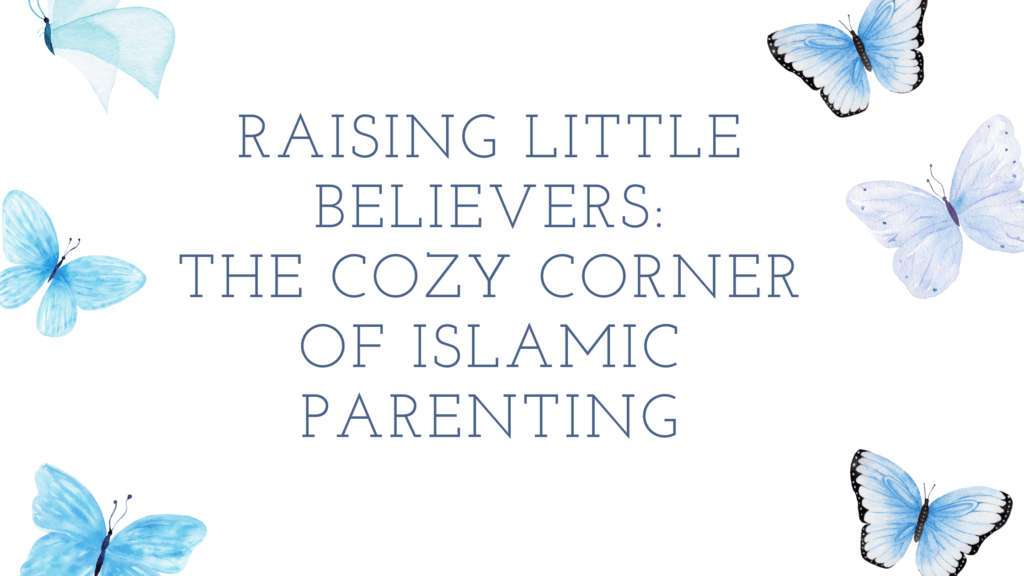
Is Islam Monotheistic? Exploring the Heart of Faith ✨
Has anyone ever asked you, is Islam monotheistic? It’s a great question, especially when you’re raising little future leaders who are full of questions themselves! Let’s dive into the core of what makes Islam a faith grounded in the oneness of Allah, and why this belief is so beautifully simple yet profound. 🌟
What Does Monotheism Even Mean?
At its core, monotheism means believing in and worshipping one God. In Islam, this belief is called Tawheed, and it’s the foundation of everything. Surah Al-Ikhlas explains it perfectly:
“Say (O Muhammad (sallallaahu alayhi wasallam)): He is Allah, (the) One. Allah-us-Samad (The Self-Sufficient Master, Whom all creatures need, He neither eats nor drinks). He begets not, nor was He begotten; And there is none co-equal or comparable unto Him.” [al-Ikhlas 112:1-4]
These verses sum it up: Allah is unique, eternal, and there’s absolutely nothing like Him. No partners, no equals, and definitely no sharing His divine powers. Simple, right?
The Proof Is in the Simplicity
Islam’s monotheism aligns with human nature, or Fitrah, the instinctive belief in one Creator. Ever notice how kids instinctively ask, “Who made this?” That’s Fitrah at work! As Muslims, we nurture this natural inclination by teaching our children about Allah as the sole Creator and Sustainer.
Rationally, Islam invites us to reflect on the universe. Who else but Allah could create the stars, the mountains, and that cup of tea you’re enjoying after a long day? It’s all part of His design, reminding us of His oneness.
Learn more about embracing Islam’s core values.
Islam Through the Lens of History
Did you know that all prophets taught the same message of monotheism? From Adam to Muhammad (peace be upon them all), they called people to worship Allah alone. The Qur’an says:
“And We certainly sent into every nation a messenger, [saying], ‘Worship Allah and avoid false gods.’”(Qur’an 16:36)
This continuity reinforces that Islam isn’t just monotheistic but also universal. Talk about timeless wisdom!
What About Everyday Life?
Monotheism isn’t just a belief; it’s a lifestyle. When you’re mindful that everything—from your kids’ giggles to your life’s tests—comes from Allah, it’s easier to stay grounded and grateful.
Raising children with this understanding is a game-changer. They learn that no matter what happens, they can turn to Allah, the One who listens, cares, and provides. Plus, it simplifies those endless “why” questions from the kiddos. “Why do we pray?” Because Allah is our Creator, and He deserves our worship!
Explore evidence for Islam’s truth here.
In your kitchen: one chef in charge ensures dinner isn’t a disaster. Imagine if everyone decided to whip up their own dish at the same time—chaos, right? Believing in one God (Tawheed) ensures harmony in our lives and the universe. Allah is the one taking care of it all.
Why Monotheism Matters to Moms
For busy Muslim moms, remembering that Islam is monotheistic simplifies everything. Life can get overwhelming, but Tawheed reminds us to focus on Allah alone. Whether it’s during a midnight diaper change or a deep convo with your teen, remembering Allah’s oneness brings peace and perspective.
Final Thoughts ✨
So, what do you say when your neighbor asks you, “Is Islam monotheistic?” Absolutely! From its foundations to its everyday impact, Islam’s message of one God is clear, simple, and deeply fulfilling. Let’s teach our little ones this timeless truth and watch them grow into confident, grounded individuals who know exactly where to turn for guidance. After all, there’s nothing more reassuring than knowing Allah is always there.
Got questions? Share your thoughts below, or check out Embracing Islam’s Core Values to dive deeper. Let’s keep the conversation going!



